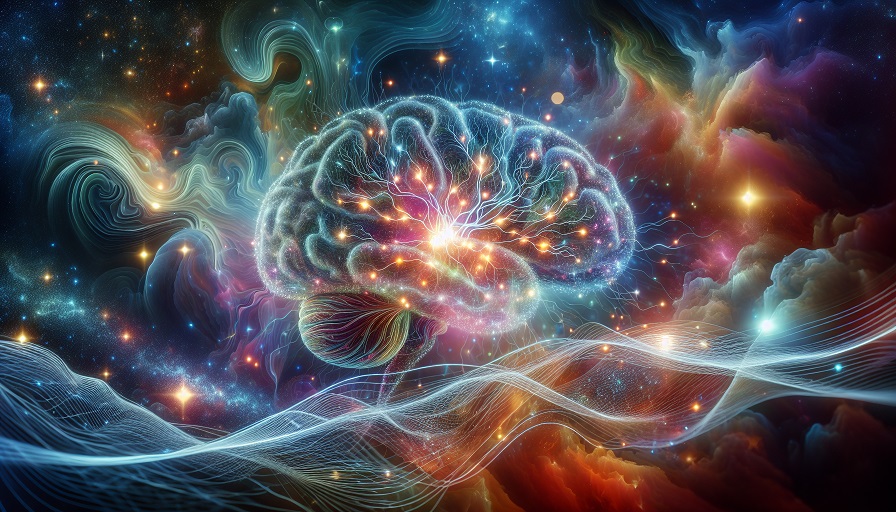
You’ve probably heard the advice: “Do a digital detox.” Unplug for a weekend. Turn off your notifications. Maybe even delete your social media. It’s become the go-to solution for anyone feeling overwhelmed, distracted, or mentally scattered. And while it’s true that screen time has a cost, here’s the uncomfortable truth – digital detoxes aren’t the cure we think they are.
Sure, taking a break can feel refreshing. But once you plug back in, the stress, the noise, the attention fragmentation? It all comes roaring back. That’s because the problem isn’t just the tech. It’s how our brains are responding to a lifestyle built on constant stimulation. Turning off your phone for 48 hours won’t fix that.
Contents
The Detox That Doesn’t Last
Let’s start with the obvious: yes, your brain does need breaks. Constant screen exposure can strain your eyes, drain your energy, and disrupt your focus. But the concept of a “detox” implies that you can temporarily abstain and come back fully cleansed. That’s not how cognitive health works.
You can’t undo years of hyperstimulation with a weekend in the woods. If you feel amazing during your detox but miserable the minute you reconnect, the issue isn’t just your devices. It’s your baseline brain function. And unless that gets addressed, no amount of unplugging will give you lasting mental clarity.
The Deeper Problem: Stimulation Addiction
We’ve trained our brains to expect rapid, continuous input. Scroll. Click. Swipe. Repeat. Over time, this conditions our reward system – particularly the dopamine pathways – to seek novelty constantly. The result? Anything slow, quiet, or effortful (like reading a book or writing a report) suddenly feels unbearable.
This isn’t a personality flaw – it’s a neurochemical shift. And it’s why digital detoxes feel so hard. You’re not just missing your favorite app. You’re fighting a brain that’s used to being hit with a firehose of stimulation every few seconds.
And unless you retrain that reward system, the minute you go back online, you’ll fall into the same patterns – because your brain still prefers the path of least resistance.
Why Detoxes Can Backfire
In some cases, digital detoxes can even reinforce dependence. Here’s how:
- They create an all-or-nothing mindset. You’re either “off the grid” or back in chaos. There’s no sustainable middle ground.
- They lack long-term tools. Unplugging removes the stimulus but doesn’t teach your brain how to handle it better.
- They offer relief, not repair. You feel better temporarily, but the underlying fatigue, distraction, and mental fog remain.
We don’t need less tech – we need stronger brains. Brains that can handle stimulation without collapsing under it. And that requires more than turning the phone off.
What Your Brain Actually Needs
To build lasting resilience in a tech-saturated world, your brain needs support in three major areas: attention regulation, stress recovery, and cognitive nourishment. Here’s how to start building that foundation:
1. Build Digital Boundaries, Not Detoxes
Set time-based limits for screen use. Turn off non-essential notifications. Schedule “focus hours” during the day where devices are off or out of reach. These boundaries train your brain to shift between stimulation and stillness more fluidly.
2. Rewire Your Dopamine System
Practice delaying gratification. Spend time on activities that offer
3. Move Your Body Daily
Exercise is one of the most effective tools for regulating brain function. It increases blood flow, stimulates BDNF (which supports neuroplasticity), and helps clear out stress hormones. Even a 20-minute walk can reduce screen-related fatigue.
4. Nourish Your Brain from the Inside
Your brain burns through nutrients at a rapid rate – especially when you’re processing endless streams of information. Without the right support, cognitive fatigue sets in fast. That’s where nutrition (and sometimes supplementation) comes in.
How Brain Supplements Can Help in a Digital World
If your mental focus crashes every afternoon, or if you feel overstimulated yet underproductive, your brain may be missing the resources it needs to thrive. This is where nootropics – also called brain supplements – can provide targeted support.
For example:
- Citicoline supports attention and mental energy, helping your brain stay focused even amid distractions.
- L-Theanine promotes calm alertness, balancing the wired feeling that often comes with digital overload.
- Rhodiola Rosea helps your brain recover from stress and resist mental fatigue.
- Lion’s Mane Mushroom supports long-term neuroplasticity, which is essential for adapting to new habits and mental routines.
Formulas like Mind Lab Pro combine these ingredients into a comprehensive stack that supports focus, clarity, and cognitive resilience. They don’t make you invincible to screen stress – but they do help your brain manage it more effectively.
It’s Not About Disconnecting – It’s About Strengthening
Technology isn’t going away. And most of us aren’t going to quit our jobs and move to a cabin in the woods. So instead of fantasizing about total disconnection, focus on building a brain that can handle connection without falling apart.
You don’t need to escape from your devices. You need to build the kind of mental environment where you can use them intentionally – without letting them use you.
Digital detoxes feel good in the moment – but they won’t save your brain in the long run. Real mental resilience comes from consistent boundaries, cognitive nourishment, and training your brain to regulate attention in a high-stimulus world.
Instead of unplugging and hoping for the best, start building the mental foundation you need to stay sharp, focused, and balanced. And if your brain needs a little help along the way? There are tools for that, too.

